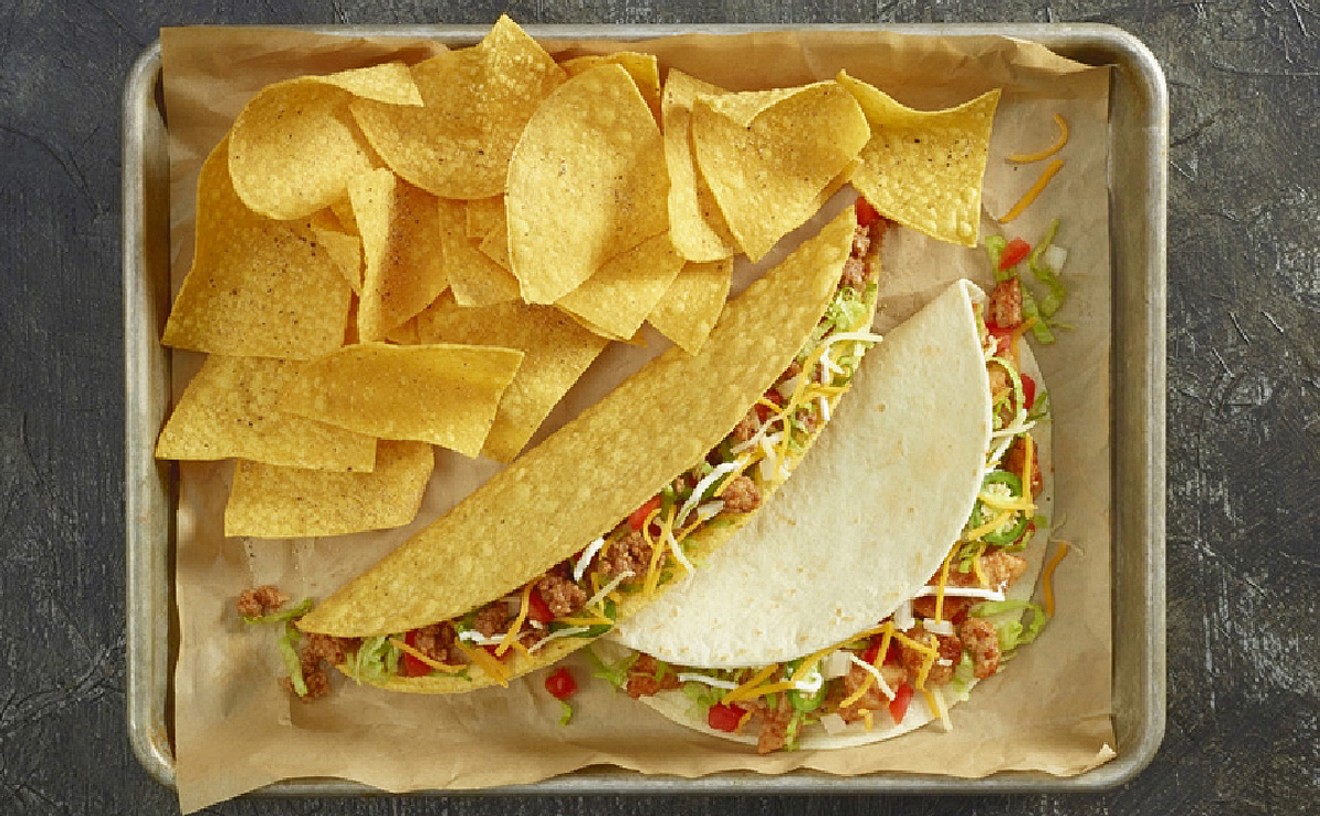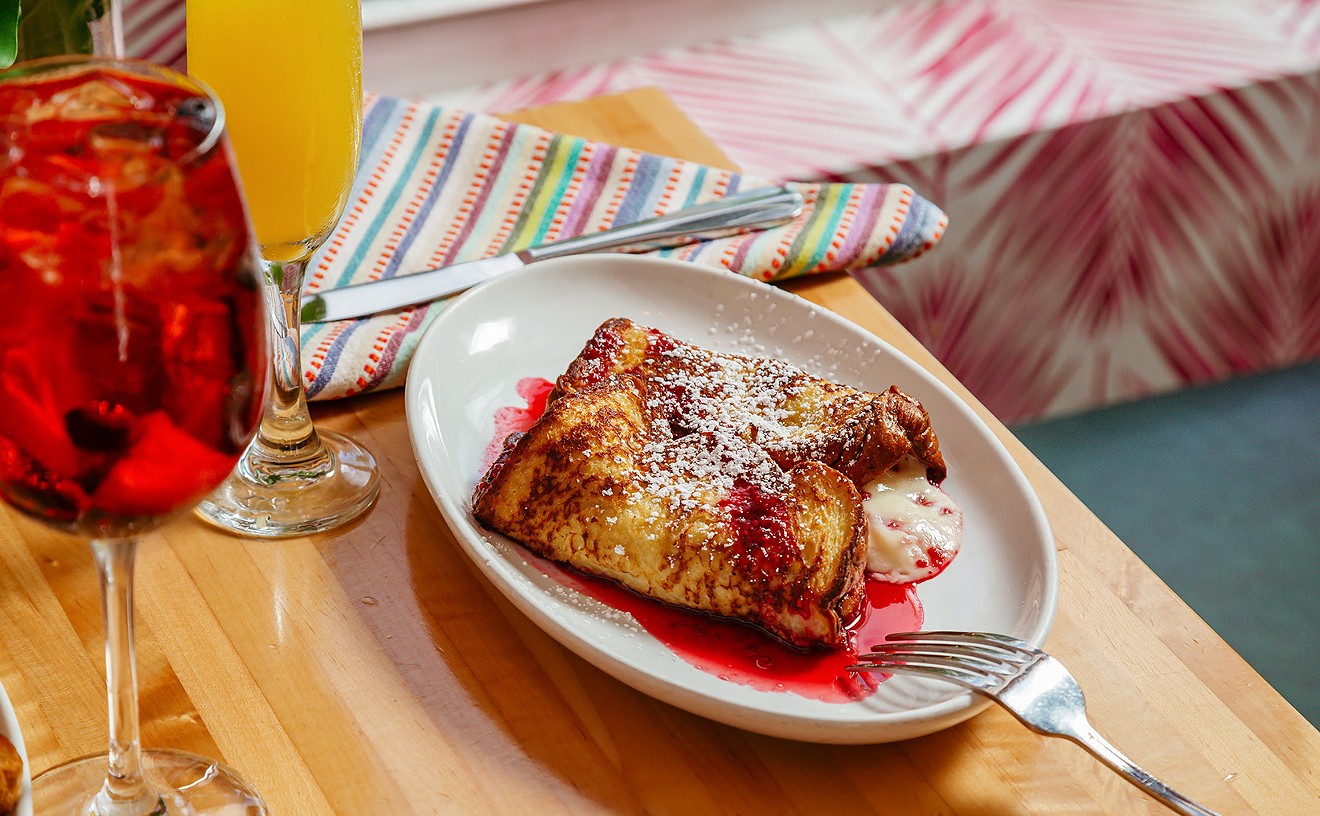Journalist, author, and historian Mark Kurlansky's most well-known books are the international best-sellers Salt, Cod (which won a James Beard award), 1968, The Food of a Younger Land, and A Basque History of the World. His latest book, Edible Stories, is his third work of fiction. It features a recurring cast of characters, as well as a central food for each story.
Kurlansky lived in Miami when he worked as an international correspondent. He lived here for seven years, while working in the Caribbean for The Chicago Tribune. Coincidentally, he also wrote for Miami New Times in its earliest days.
The writer is back for his eighth visit to the Miami Book Fair. He presents Edible Stories on Sunday at 2 p.m. at the Miami Book Fair. You can also catch him on the Haiti Noir panel with Edwidge Danticat at noon on Sunday. Kurlansky returns to South Florida in January for the Key West Literary Seminar.
Interview after the jump...
New Times:; I really enjoyed the story of Wonderbread and Masitas,
the street kids who lift the caviar from the store and become
aficionados of osetra and beluga.
Kurlansky: Like all my fiction, I pull things from a lot of different
places. I grew up in places where people were doing things like that,
so I kind of knew that world.
I actually started thinking about this story in some store like
Zabar's. I was noticing they had come up with these elaborate programs
for buying caviar so you couldn't steal it. And I started thinking,
well yeah, it's really valuable. I suppose that if street people were to
steal it--because it's this valuable little thing you can put in your
pocket and it's worth $100--suppose they opened one and tried it,
wouldn't they love it like everyone else does? I mean, it's amazing
stuff.
Edible Stories is arranged in short stories that eventually start to
weave together. How did you decide to structure the book this way?
The further into the book you go, the harder it is to read the stories
by themselves because they build on past stories. So, the last story
would not make much sense if you don't read the rest of the book.
I wrote the first story in 1976. I had been in London and on a rainy
day, I fell in a hole in the sidewalk, exactly like I describe in the
story. I thought, "What a great opening for a short story." and I wrote
the story. I always thought it was one of the best things I'd ever
written and I never really did anything with it. About ten years ago, I
just started thinking about Margaret and Robert and what happened to
them.
I started doing other stories. I thought that food would be a great way
of getting at characters. Everybody has their own relationships with
food and you can define all of these people by all of their
relationships with food.
Some of the characters have pretty strange relationships with food.
Robert Eggle, who has lost his sense of taste and smell, is repulsed by
people's obsessions with food. Another character, Emma, is preoccupied
with the carcinogens and poisons in food, to the point where she almost
stops eating.
Well, some people have very dark relationships with food. People don't always love food.
Do you have any particular foods or beverages you like to snack on while you write?
While I write, I drink a lot of espresso. I have an espresso maker in
my office. In one of my books, I gave an acknowledgment to caffeine.
I eat fruit depending on the season. Right now, I'm eating apples and pears. That's all I do while I write.
Is there anything in particular you're looking forward to eating in South Florida?
This is where I'm a big disappointment. I hadn't really thought about
it. Wherever I go, I like to eat things that are of the place. The
funny thing about Miami is that it used to be much better for that type
of eating than it is now that it's had this explosion of restaurants.
Food always reflects the world we live in and we live in a global world,
and so the food options have become increasingly global. Going to
Miami is no longer associated with stone crabs and grouper, but I would
like to eat something like that, actually.
Part 2: Kurlansky on why he is not a food writer...









